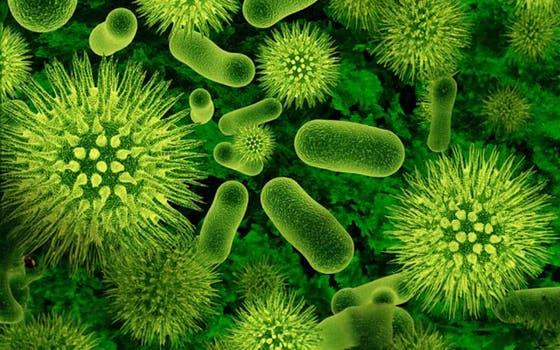Bacterial metabolites involved in risk of IBD and colorectal cancer

PhD research by Coco Duizer (UMC Utrecht) provides insights into the detrimental effects of bacterial-derived metabolites (in particular ADP-heptose and butyrate) on the intestinal epithelium. This was accomplished using Fusobacterium nucleatum and Campylobacter jejuni, which also provided insights into pathogenic effects of these bacterial species. The results expand existing knowledge on microbiota-derived metabolites in intestinal diseases such as IBD, colorectal cancer and acute gastroenteritis.
The human gastrointestinal tract is inhabited by trillions of microbial cells that mostly form a symbiotic relationship with the host. Out of these microbial cells, bacteria have been studied best with regard to their function and effects in the intestinal tract. To this end, several bacterial species have been identified to directly or indirectly contribute to intestinal pathologies, such as inflammatory bowel disease (IBD) and colorectal cancer (CRC). Recent focus has shifted to the contribution of bacteria-derived metabolites, the intermediate or end products of metabolic reactions, on the intestinal tract. In this work, PhD candidate Coco Duizer (Department of Medical Microbiology, UMC Utrecht) aimed to further delineate the contribution of microbiota-derived metabolites on IBD and CRC. For this, he investigated metabolites from the well-established oncobacterium F. nucleatum in organoids, with additional exploration of C. jejuni.
Role of bacterial-derived metabolites
Butyrate is a short-chain fatty acid that has been reported to be secreted by Fusobacterium species, which was confirmed to be released by these strains. Also, both Fusobacterium-released metabolites and butyrate induced autophagy in intestinal epithelial cells, indicating that this prolonged autophagy could result in toxicity. All in all, Duizer identified Fusobacterium species to secrete butyrate which promoted autophagy and organoid cytotoxicity.
F. nucleatum is not only associated with IBD, but also with CRC. Thus, Duizer wondered whether Fusobacterium species secrete metabolites that could promote development of colorectal cancer. A pro-inflammatory compound activating Alpha-kinase 1 (ALPK1) signaling was identified to be released from Fusobacterium species, which appeared to be the metabolite ADP-heptose. In addition, RNA-sequencing suggested that ADP-heptose released by Fusobacterium could promote immune evasion of tumor cells by upregulating the inhibitory receptor PD-L1. Thus, Fusobacterium species secrete ADP-heptose that could promote tumor development by evading the immune system via PD-L1 upregulation.
Coco Duizer also identified another ADP-heptose secreting bacterium, C. jejuni, which is known to cause severe food-borne gastroenteritis. The pro-inflammatory effect of C. jejuni on epithelial cells was dependent on a functional ADP-heptose synthesis pathway in the bacterium, indicating that indeed specifically ADP-heptose or another upstream metabolite was responsible. Additionally, the ADP-heptose derived from C. jejuni activated a wide set of pro-inflammatory genes, indicating that this metabolite could contribute to the severe inflammation induced by C. jejuni infection.
Coco Duizer concludes: “These findings suggest that Fusobacterium and ADP-heptose might be important biomarkers for IBD and CRC, and that targeting Fusobacterium might be crucial in preventing the development of these diseases. Alternatively, the potential for therapeutic intervention targeting ADP-heptose or ALPK1 opens up new avenues for preventing inflammatory and carcinogenic processes initiated by bacteria secreting this metabolite.”

Coco Duizer
PhD defense
Coco Duizer, MSc (1994, Rossum) defended his PhD thesis on June 13, 2024 at Utrecht University. The title of his thesis was “Microbiota-derived metabolites in intestinal disease - Moving from association to molecular mechanism”. Supervisors were Marcel de Zoete, PhD and prof. Rob Willems, PhD (both Department of Medical Microbiology, UMC Utrecht). Coco Duizer will continue his career as a postdoc at Ruaidhri Jackson’s lab at Harvard Medical School in Boston, MA (USA).
